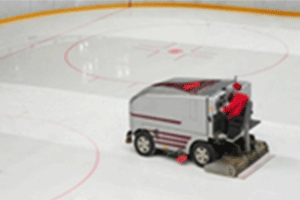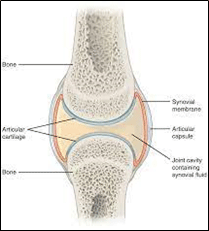Why do our joints sometimes make crackling noises?
Injury, carrying too much weight, and particularly increasing age not only cause the hyaline cartilage to wear down, but can also result in decreased production of synovial fluid.
Picture this:

But then, we live our lives…and the ice gets skated on…and little nicks and dents are formed on those surfaces.
The orchestra that we sometimes hear in our joints, most commonly referred to as crepitus, is the result of the rubbing of cartilage on joint surfaces that are not as smooth as they used to be. It can affect any joint in the body, and the sound may be muffled or easily heard. Most often, it is not painful and nothing to worry about. Crepitus is more common as we get older, although it can be experienced at any age.
How can we take care of our cartilage and keep our joints lubricated as we age?
If you’re a regular reader of my blogs, you won’t be surprised to learn that, once again, the science-backed answer is exercise. There’s truth to the expression “motion is lotion”! Everyday movements and exercise keep your joints lubricated and healthier. Staying active can reduce or even prevent joint pain and stiffness.
Maintaining a healthy diet is another thing that can make a big difference, especially one that includes healthy fats such as salmon, trout, mackerel, sardines, avocados, olive oil, almonds, walnuts, and chia seeds. The omega-3 fatty acids in these foods assist in maintaining the fluid needed for joint lubrication.
Staying well hydrated also helps to keep our joints lubricated as it increases the volume of synovial fluid and allows the fluid to surround the joint evenly.
*Hyaline cartilage is one of the most slippery biological tissues. It has an extremely low “coefficient of friction”, which is a measure of the amount of friction existing between two surfaces. Smooth surfaces produce the least friction.


